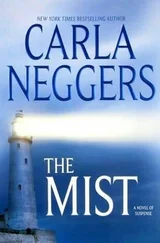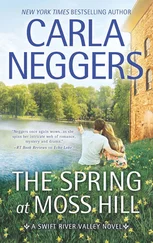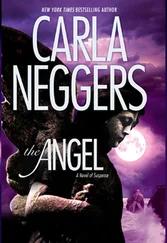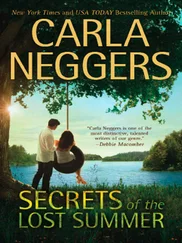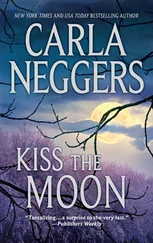He’d thought Betsy would dump her elderly diplomat husband and marry him.
But Libby understood what it was to have unrealistic dreams, dreams everyone else thought were insane—not that most people gave a damn about anyone else’s hopes and dreams. Nick Janssen didn’t. He’d wanted a presidential pardon and let it be known he’d pay for one. He didn’t care who got hurt in the process. His blindness to the aspirations of others had backfired on him as well.
When he didn’t speak, she went on. “You had a guy use you in May for his own ends. The two men you sent to the States to clean up after him could have been a problem, too, but they’re dead. They can’t testify against you. They were two of your most trusted bodyguards, but who’s to say they wouldn’t have turned on you?”
“What does any of that have to do with Samkevich?”
“He could testify against you. The authorities were closing in on him. He knew it. He’d have cut a deal in a heartbeat, given them you in exchange for a lighter sentence.”
Janssen thought a moment. “You’re right, of course.”
She hid her relief. “I don’t want payment for him.”
“His body—”
“He won’t be discovered for a few more days.”
“You’re a very cold woman, Miss Smith.”
She tried not to bristle, but she wasn’t cold. Not at all. “I’m good at what I do.”
“This is a nice town,” he said absently. “I could have stayed here for a long time. I was on an island off the coast of Scotland for two months. Did you know that?”
“No,” she lied.
He seemed to like that, having one over her. “The food was terrible. Here…” He gave a wistful sigh. “I have other safe houses.”
“Of course.”
“I want to see my mother’s grave.” His words were soft and yet toneless, as if he’d said them so many times they’d lost their meaning, become an unattainable fantasy. “It’s within walking distance of where I grew up in northern Virginia. She died last winter.”
Libby squirmed. She’d gone to her father’s grave once, just so she could spit on it. “I’m sorry. Do you have your list?”
He looked at her again. “Yes. You really are very cold.” But he fished a white index card out of his shirt pocket and passed it to her. “Ten names. A hundred thousand dollars for each.”
She tucked the card into her canvas bag. “Excellent.”
“You didn’t look at any of the names.”
“There’s time for that. I’ll need a deposit of a hundred thousand dollars wired into my account.”
He nodded. “I’ll take care of it. Should I be arrested—”
“I’ll work faster and expect a bonus. Double.”
“That’s two million dollars.”
“You rich tycoons.” Libby smiled, hoisting her canvas bag higher onto her shoulder. “Always so good at math.”
She slid smoothly to her feet, noticing that Janssen didn’t so much as glance at her breasts straining against her tank top. Wrapped up in his own problems, she supposed.
She glanced at her watch. Four-fifteen. What to do with herself the rest of the day?
“I want this all to be over,” he said quietly.
“It will be. Patience.”
“The bonus?”
She’d started to move away from the bench, but his words—his cool tone—forced her to turn back.
“Any bonus would be paid only upon my release.” His eyes, a frosty blue, held her in place. “I wouldn’t want you to get any ideas.”
“Of course. I understand.”
She did, too.
She understood that one or two million—whichever amount Janssen ended up paying her—was a miniscule amount to him. And it wouldn’t satisfy her. She was finished being a bit player, a hired gun, an anonymous force in a larger game.
She wanted it all, and Nick Janssen was her vehicle for getting it.
You have no fellow feeling, do you?
The words came out of nowhere. The jolt of memory. Philip Spencer might have been perched on the branch of a nearby linden tree, speaking to her from the dead.
Her heart pounded, and she actually glanced around her, just to make sure he hadn’t somehow materialized in her shadow.
He’d tried to save her from herself.
Leaving Janssen on the bench, Libby hurried away. Glancing around, she noticed a balding man in a rumpled suit break off from the boat tour queue and walk down the street.
A prickly sensation crawled up her back.
Something’s wrong.
She walked into a small café and sat at a table inside, with her back to the wall so that she could see out the open front.
The balding man had disappeared.
She had good instincts. She was a superior shooter. But she wasn’t trained at surveillance, countersurveillance, any of those tricks of the trade. Mostly, she got along by guts and a willingness to take risks—and the unexpectedness of being a petite woman in her midthirties who killed people for pay.
It was possible she was wrong.
She bit into the small cookie that came with her coffee.
Five minutes later, Nick Janssen got up from the bench and stretched.
He walked to a fence overlooking the narrow waterway.
Ten minutes kicked by. He seemed transfixed. Libby drank her coffee. Something isn’t right.
Janssen turned and started toward the street. The Dutch police pounced.
An Arrestatieteam, their version of a SWAT team. They moved fast, intercepting their target, giving him orders in English, getting handcuffs on him.
Libby joined the onlookers at the outdoor tables.
There was no sign of the balding man. Was he a police officer?
Had he seen her on the bench with Janssen?
Janssen went quietly. He wasn’t a fighter. He relied on others to do his fighting for him.
And his killing.
Libby paid for her coffee, wondering if he’d blame her for his arrest.
There was very little she could do if he did.
In the meantime, she had a job to do.
Ten names to memorize. Ten people to kill.
Equal light, level sight.
Falling back on the basics, Rob Dunnemore aimed his .40-caliber Glock and emptied it into the silhouette twenty-five yards away.
Four months ago, he’d been the target. Alive, not a paper silhouette.
Even with ear protection, he could hear the shots echo across the indoor range. He didn’t flinch. He was soaked with sweat under his Kevlar vest. He’d popped off a couple of boxes of ammo and felt the burn in his shoulders and back, another reminder that he was out of practice.
He racked back, then made sure he’d counted his shots right and hadn’t left a round in the chamber. He didn’t want to ruin his practice by putting a bullet in his foot. Shooting was a perishable skill, and he was rusty—he hadn’t done this much in one outing since he’d taken a round to his gut in Central Park almost four months ago.
He’d almost bled to death. He’d lost his spleen. Lying in his hospital bed, helpless, he’d nearly lost his family.
Those hadn’t been good days.
Shrugging off his goggles and ear protection, he could smell the smoke from the powder and the spent ammunition. His hold on his Glock was tighter than it needed to be. A death grip, like a damn rookie’s.
He made sure his gun was clear and safe, then set it on the wood counter in front of him and reeled in his target.
Thirteen in center mass, one a clear miss.
Not bad. Just a hair off a hundred percent.
The rest was a mind game that had nothing to do with technical proficiency.
The door behind him creaked open. “Don’t shoot,” Juliet Longstreet said in her usual cheeky manner. “It’s just me.”
But Rob could tell from her expression that something was up with his fellow deputy U.S. Marshal, and he unclipped his target, loosened his vest. “Hey, Longstreet.”
Читать дальше




